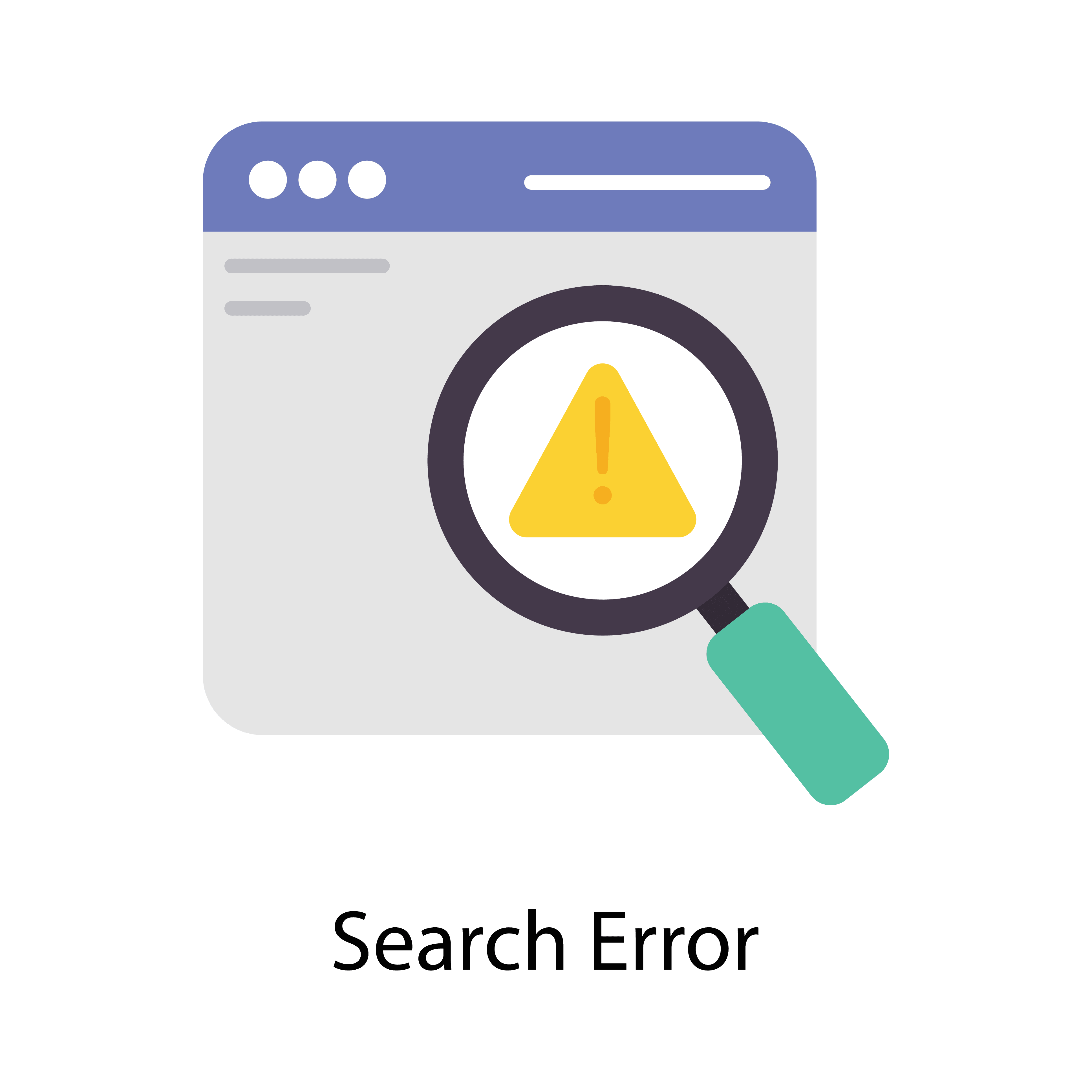9 Ways to Build a Better Brand Reputation

Key takeaway:
- A strong brand reputation is crucial for success: building a better brand reputation can increase customer loyalty, trust, and positive word-of-mouth, ultimately driving business growth.
- A good brand reputation is made of various factors, including such elements as customer satisfaction, ethical business practices, quality products or services, consistent branding, and positive interactions with stakeholders.
- Proactively managing brand reputation is essential: Businesses need to actively monitor and address issues that could damage their reputation. These may be negative reviews, social media backlash, or unethical behavior. By having a proactive approach, companies can maintain a positive brand image and mitigate potential risks.
The importance of building a better brand reputation
Building a strong brand reputation is crucial in today’s competitive market. A positive brand image not only attracts customers but also builds trust and credibility.
To build a strong brand reputation, businesses must combine various strategies. By implementing these strategies, companies can establish a positive perception among their target audience, improve customer loyalty, and ultimately increase profitability.
This article provides insights into the importance of building a better brand reputation and offers practical suggestions for achieving this goal. Leveraging these strategies can lead to improved brand equity and long-term success.
Understanding brand reputation: What it includes and why it’s important
Brand Reputation: What it is and why it matters
Brand reputation is formed by various elements, each adding to your company’s overall image and public perception. Your brand’s image includes anything from customer satisfaction and product quality to ethical practices and how the brand is seen by the public.
Understanding how brand reputation is formed is essential. That’s because how people see your brand is a crucial factor directly affecting consumer trust, brand loyalty, and the long-term success of your business.
What goes into your brand reputation?
One key aspect of brand reputation is how customers perceive the quality and value of your company’s products or services. A positive brand reputation can lead to increased customer loyalty and repeat business, while a negative reputation can drive customers away.
Ethical practices and responsible corporate behavior also play a significant role in shaping brand reputation. For example, companies believed to be transparent, environmentally conscious, and socially responsible are often viewed more favorably by consumers.
Another crucial piece of brand reputation is customer satisfaction. Positive experiences with your brand can result in favorable word-of-mouth recommendations, as well as increased customer loyalty. On the other hand, negative interactions can sometimes damage your brand’s reputation so badly that you lose business.
Why does your brand reputation matter?
Monitoring and managing brand reputation is essential in today’s digital age. With the rise of social media and online review platforms, a brand’s reputation can be quickly smeared by negative reviews or just one viral video. This makes it critical to actively engage with customers, be responsive to their concerns promptly, and maintain a positive online presence.
How do you build a better brand?
To build a better brand reputation, it’s crucial to utilize various online strategies, often all at once.
First, delivering consistent product quality and excellent customer service is vital. This includes investing in quality control measures, training employees to provide exceptional service, and promptly resolving customer issues.
Second, it’s important to cultivate a strong online presence and actively engage with customers on social media and other digital platforms.
Taking a proactive reputation management approach is also key. This involves monitoring online reviews and addressing any negative feedback or concerns promptly and professionally.
Participating in community initiatives and corporate social responsibility efforts can also greatly enhance your brand reputation while improving perception among consumers.
In short, understanding brand reputation and what it’s made of is vital in today’s competitive landscape. When your company prioritizes things like product quality, ethical practices, and customer satisfaction, you too can build a positive reputation that fosters consumer trust, loyalty, and long-term success.
The benefits of a good brand reputation
A strong brand reputation comes with numerous advantages. For instance, positive brand perception tends to lead to increased customer loyalty, trust, and credibility in the market.
A positive image also tends to result in enhanced customer satisfaction, helping to attract new customers and retain existing ones. A good brand reputation allows your business to separate your brand from the competition, in some cases even enabling you to command better prices for what you offer.
And, a polished online image helps foster stronger relationships with stakeholders, including investors, suppliers, and employees, leading to better partnerships and increased brand equity.
What’s more: a positive brand reputation builds a stronger protective firewall during times of crisis or negative publicity, as customers are more likely to give you the benefit of the doubt.
By consistently delivering on your promises and values, your brand can establish itself as a reliable and trustworthy provider in the eyes of your customers.
Examples of businesses with strong brand reputations
Businesses with strong brand reputations can be found across various industries.
A popular example is Apple, a leading technology company known for innovative products and an almost hyper-loyal customer base. Another is Amazon, an e-commerce giant renowned for its customer-centric approach and efficient delivery services. Additionally, the popular coffee chain Starbucks has established a strong brand reputation by providing high-quality beverages and creating a welcoming atmosphere in its stores.
Additionally, global sports apparel behemoth Nike has built a strong brand reputation, building great customer loyalty through anything from its iconic logo and innovative products to many widely successful marketing campaigns.
Overall, these businesses are examples of brands that have consistently delivered on their promises, leading to a favorable reputation among customers.
Let’s take a closer look at the details:
Apple – Apple’s brand reputation is continually strengthened by a consistent focus on sleek design, user-friendly interfaces, and seamless integration across an ecosystem of devices.
Amazon – Amazon’s reputation is built not only on its wide product selection and competitive prices but also on its commitment to customer satisfaction, evident through its hassle-free return policy.
Starbucks – The coffee maker’s brand is enhanced by its emphasis on fair trade practices, ethical sourcing of coffee beans, and initiatives supporting the communities in which it operates.
Nike – Known for its famous swoosh icon and high-profile athlete endorsements, Nike has successfully positioned itself as a symbol of athletic excellence and inspiration, collaborating with top athletes and continuously pushing the boundaries of innovation in sportswear.
Threats to brand reputation
In our competitive business landscape, safeguarding your brand against reputational threats is crucial. Maintaining a positive brand image requires careful navigation of such challenges as negative publicity, customer dissatisfaction, social media backlash, product recalls, legal issues, data breaches, and many others.
Taking proactive measures to tamp down such threats is essential to protect your brand reputation and ensure long-term success.
When it comes to threats to brand reputation, negative publicity can be particularly damaging.
- Negative information or controversy surrounding a brand can spread rapidly through social media and other online platforms, potentially reaching a wide audience.
- Customer dissatisfaction, whether due to product quality or poor customer service, can also tarnish a brand’s reputation and erode customer trust.
- Legal issues like lawsuits or copyright infringements can have a detrimental impact on a brand’s credibility.
- Data breaches and cybersecurity incidents can also expose a brand to significant reputational risks, especially if customer data is compromised.
It is important for businesses to be proactive in addressing these threats and implementing strategies to protect their brand reputation. This includes closely monitoring online conversations and social media mentions, promptly addressing any negative feedback, and providing exceptional customer service to maintain customer satisfaction.
Building strong relationships with key stakeholders, including customers, employees, and partners, can also help protect a brand’s reputation. Having crisis management plans in place allows you to more effectively handle any potential threats and minimize their impact.
By being proactive and responsive, businesses can mitigate the risks associated with threats to brand reputation and maintain a positive standing in the market.
The importance of actively managing and protecting brand reputation
Actively managing and protecting your brand image online is crucial. Prioritizing reputation management makes it easier to manage your brand image, build trust with your target audience, and gain a competitive edge in your niche. At the center of this effort is consistent monitoring of online presence, addressing any negative feedback promptly, and executing strategies that help prevent reputation damage.
Additionally, proactive reputation management can lead to increased customer loyalty, improved stakeholder relationships, and better overall business performance. By being vigilant and proactive in managing and protecting your brand reputation, you can safeguard your reputation and ensure long-term success far into the future.
9 ways to build a better brand reputation
Building a positive brand reputation is crucial in the marketplace. Establishing trust and credibility can be achieved through various strategies that boost customer sentiment and brand perception.
Here are nine ways to strengthen and improve your brand reputation:
- Consistent Brand Messaging: Make sure your brand always communicates your core values, mission, and unique selling propositions across all channels and touchpoints.
- Deliver Exceptional Customer Service: Prioritize customer satisfaction by providing prompt and personalized support. Address questions and concerns in a timely way.
- Authenticity and Transparency: Be genuine and transparent in every brand interaction. Showcase honesty, integrity, and a clear commitment to customer experience at every opportunity.
- Consistent Brand Experience: Consistently delivering a seamless brand experience at every stage of the customer journey helps build credibility and trust.
- Strong Online Presence: Establish a robust online presence through a well-designed website, engaging social media profiles, and positive reviews/
- Engage with Your Audience: Engage with your audience through social media platforms, blog posts, podcasts, or webinars. Provide valuable content and build relationships whenever possible.
- Collaborate with Influencers: Strive to work with influencers and thought leaders who align with your brand values. Doing so can significantly enhance your reputation and broaden your reach.
- Active Online Reputation Management: Monitor online mentions and reviews about your brand. Address negative feedback quickly and professionally to safeguard your reputation.
- Encourage User-generated Content: Foster a community of brand advocates who can contribute testimonials, reviews, and user-generated content, boosting social proof and credibility.
By following these nine approaches, you can cultivate a positive brand perception while generating enthusiasm, among your target audience, ultimately leading to long-term success. Act now and unlock the potential of building a remarkable brand!
Building a great reputation is an ongoing effort
Building a strong brand reputation requires a commitment of time, effort, and dedication. Following proven strategies helps establish a stronger, more compelling and more resilient brand image that holds up against an unpredictable online environment.
Incorporating such elements as effective marketing campaigns, exceptional customer service, and ongoing target audience engagement are all key to this effort. Additionally, developing a consistent brand message, leveraging social media platforms, and investing in brand ambassador programs can reinforce your message and how you resonate among consumers.
It is important to monitor online presence, address customer feedback promptly, and stay true to brand values. Proactively managing brand reputation is crucial for long-term success in the competitive market.
5 Facts About 9 Ways to Build a Better Brand Reputation:
- ✅ 61% of customers would leave a business for a competitor after just one bad experience. (Source: Team Research)
- ✅ People are willing to pay 22% more for a product or a service from a business with a good brand reputation. (Source: Team Research)
- ✅ 81% of consumers said they only buy from a brand once they can “trust the brand to do what’s right.” (Source: Team Research)
- ✅ Over 93% of customers look at a business’s brand reputation before making a purchase. (Source: Team Research)
- ✅ One negative review can cause a 22% loss in business, while four negative reviews can be responsible for an approximate 70% loss of business. (Source: Team Research)
FAQs about 9 Ways To Build A Better Brand Reputation
1. How can improving ratings and reviews contribute to building a better brand reputation?
Positive ratings and reviews demonstrate customer satisfaction and build trust in your brand. They provide social proof to potential customers, encouraging them to choose your products or services over competitors.
2. Why is brand consistency important in building a better brand reputation?
Brand consistency ensures that your messaging, visual identity, and customer experience are unified across all touchpoints. Consistency creates a strong brand image and reinforces trust, making your brand more recognizable and reliable to customers.
3. How does employer branding affect brand reputation?
Employer branding directly impacts how potential employees, stakeholders, and the public perceive your company. A positive employer brand attracts top talent, boosts employee loyalty and productivity, and reflects positively on your overall brand reputation.
4. Why is corporate responsibility crucial for building a better brand reputation?
Corporate responsibility encompasses social and environmental initiatives undertaken by a company. Demonstrating a commitment to ethical practices, sustainability, and community engagement enhances trust in your brand, attracts socially conscious customers, and differentiates you from competitors.
5. How does a company mission statement contribute to brand reputation?
A well-defined and compelling mission statement communicates your brand’s purpose and values to customers, employees, and stakeholders. It showcases your company’s commitment to its core principles, strengthens brand identity, and fosters trust among all stakeholders.
6. How does brand identity influence brand reputation?
Brand identity is made of the visual and verbal elements that distinguish your brand. A consistent, well-executed brand reputation strategy builds brand recognition, fosters trust, and differentiates your brand from competitors, contributing to a positive brand reputation.



